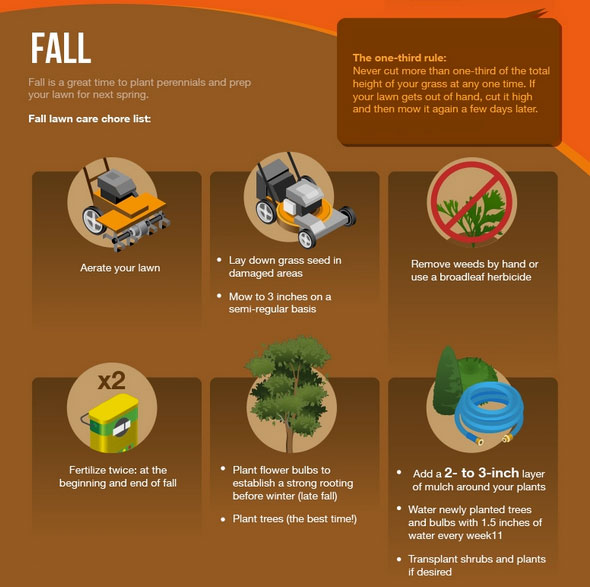SPOILER ALERT!
Take A Breath Life Right Into Your Yard With Eco-Friendly Landscaping Practices That Nurture The Setting-- Uncover Exactly How To Produce A Sustainable Paradise Today!
Article Written By-Graversen Boyd
When you think of landscaping, consider exactly how your options can affect the setting. By going with indigenous plants, for example, you not only improve your yard's beauty but also support neighborhood wild animals. Carrying out water-saving irrigation techniques can additionally contribute to sustainability. Curious about exactly how composting and organic horticulture practices can improve your dirt? Allow's check out these eco-friendly approaches that can transform your garden right into a flourishing, balanced community.
When you pick native plants for your landscape, you're not simply improving your yard's appeal; you're likewise fostering biodiversity.
Native plants are adjusted to your regional climate and soil, making them easier to maintain and extra resilient. pop over to this site give important environments and food for neighborhood wildlife, including birds, , and butterflies, promoting a balanced community.
By planting native varieties, you lower the need for fertilizers and pesticides, reducing your environmental impact. You'll additionally save water, as these plants commonly need much less watering than non-natives.
And also, you'll find a vivid selection of colors and appearances that change with the periods. Embrace the advantages of indigenous plants, and watch your yard change into a thriving shelter for nature.
As you aim to develop a lasting landscape, carrying out water-saving watering methods is critical for preserving this valuable resource.
Beginning by mounting drip irrigation systems that supply water directly to plant origins, reducing evaporation. Consider using https://www.google.com/maps/place/A+Cut+Above+Landscaping/@35.40862,-80.863594,14z/data=!4m6!3m5!1s0xa379a2759c597b5f:0xf779eddbaca8e873!8m2!3d35.4086201!4d-80.8635943!16s%2Fg%2F11tg76nn1n?hl=en&entry=ttu&g_ep=EgoyMDI1MDEwNi4xIKXMDSoASAFQAw%3D%3D for garden beds, permitting dampness to seep slowly into the soil.
Timing your watering is important; early morning or late night is optimal to lower water loss. Furthermore, invest in rain barrels to gather rainwater for irrigation, giving an all-natural resource of water.
Including mulch around plants assists retain moisture in the dirt, reducing the demand for frequent watering.
By accepting composting and organic gardening techniques, you can considerably enhance your landscape's health and sustainability.
Composting changes kitchen area scraps and backyard waste right into nutrient-rich dirt, improving your garden's fertility and structure. Beginning a compost pile or bin, mixing environment-friendlies like vegetable peels with browns such as dried fallen leaves.
Incorporating organic horticulture strategies indicates avoiding synthetic fertilizers and chemicals. Rather, use all-natural options, like garden compost tea or neem oil, to nurture plants and control bugs.
Select indigenous plants and antique ranges that grow in your local environment, lowering the requirement for additional water and chemicals.
Conclusion
Integrating eco-friendly landscaping practices not just improves your yard's appeal however also sustains the setting. By choosing indigenous plants, making use of reliable watering strategies, and welcoming composting and natural gardening, you develop a successful ecological community that profits both your plants and regional wildlife. These lasting techniques assist you conserve sources while cultivating biodiversity. So, dive into these methods and view your garden grow while making a favorable impact on the planet!

When you think of landscaping, consider exactly how your options can affect the setting. By going with indigenous plants, for example, you not only improve your yard's beauty but also support neighborhood wild animals. Carrying out water-saving irrigation techniques can additionally contribute to sustainability. Curious about exactly how composting and organic horticulture practices can improve your dirt? Allow's check out these eco-friendly approaches that can transform your garden right into a flourishing, balanced community.
Deciding On Indigenous Plants for Biodiversity
When you pick native plants for your landscape, you're not simply improving your yard's appeal; you're likewise fostering biodiversity.
Native plants are adjusted to your regional climate and soil, making them easier to maintain and extra resilient. pop over to this site give important environments and food for neighborhood wildlife, including birds, , and butterflies, promoting a balanced community.
By planting native varieties, you lower the need for fertilizers and pesticides, reducing your environmental impact. You'll additionally save water, as these plants commonly need much less watering than non-natives.
And also, you'll find a vivid selection of colors and appearances that change with the periods. Embrace the advantages of indigenous plants, and watch your yard change into a thriving shelter for nature.
Implementing Water-Saving Watering Techniques
As you aim to develop a lasting landscape, carrying out water-saving watering methods is critical for preserving this valuable resource.
Beginning by mounting drip irrigation systems that supply water directly to plant origins, reducing evaporation. Consider using https://www.google.com/maps/place/A+Cut+Above+Landscaping/@35.40862,-80.863594,14z/data=!4m6!3m5!1s0xa379a2759c597b5f:0xf779eddbaca8e873!8m2!3d35.4086201!4d-80.8635943!16s%2Fg%2F11tg76nn1n?hl=en&entry=ttu&g_ep=EgoyMDI1MDEwNi4xIKXMDSoASAFQAw%3D%3D for garden beds, permitting dampness to seep slowly into the soil.
Timing your watering is important; early morning or late night is optimal to lower water loss. Furthermore, invest in rain barrels to gather rainwater for irrigation, giving an all-natural resource of water.
Including mulch around plants assists retain moisture in the dirt, reducing the demand for frequent watering.
Composting and Organic Horticulture Practices
By accepting composting and organic gardening techniques, you can considerably enhance your landscape's health and sustainability.
Composting changes kitchen area scraps and backyard waste right into nutrient-rich dirt, improving your garden's fertility and structure. Beginning a compost pile or bin, mixing environment-friendlies like vegetable peels with browns such as dried fallen leaves.
Incorporating organic horticulture strategies indicates avoiding synthetic fertilizers and chemicals. Rather, use all-natural options, like garden compost tea or neem oil, to nurture plants and control bugs.
Select indigenous plants and antique ranges that grow in your local environment, lowering the requirement for additional water and chemicals.
Conclusion
Integrating eco-friendly landscaping practices not just improves your yard's appeal however also sustains the setting. By choosing indigenous plants, making use of reliable watering strategies, and welcoming composting and natural gardening, you develop a successful ecological community that profits both your plants and regional wildlife. These lasting techniques assist you conserve sources while cultivating biodiversity. So, dive into these methods and view your garden grow while making a favorable impact on the planet!

